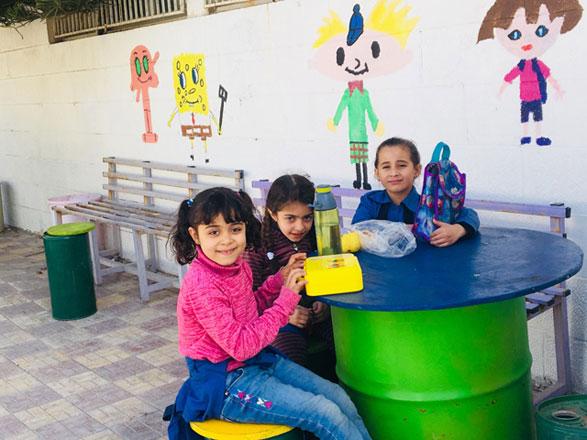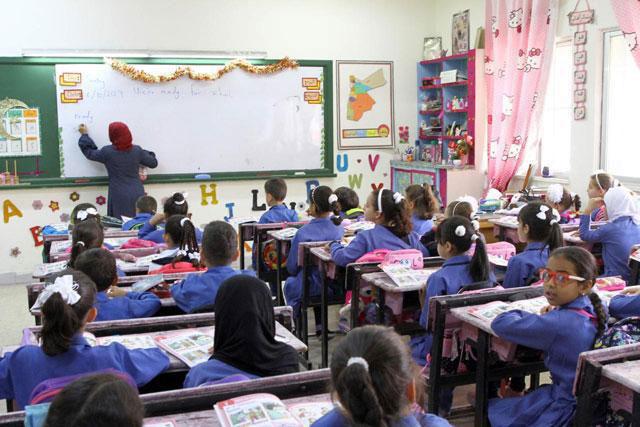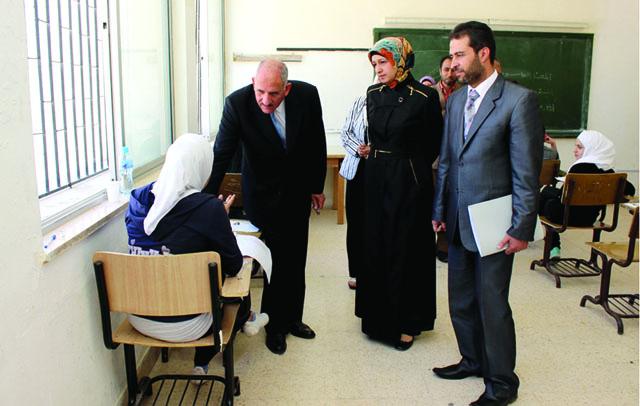You are here
Teachers’ verbal, physical violence still prevalent in schools — SIGI
By Ana V. Ibáñez Prieto - Jan 06,2018 - Last updated at Jan 06,2018
AMMAN — An 18 per cent of the students in Jordan reported verbal violence in schools over the period of 2015-2016, while an 11 per cent reported being subjected to physical punishment, a statement issued by the Sisterhood Is Global Institute (SIGI) on Thursday said.
“Training teachers and principals to deal with cases of violence and disruptive behaviour is not enough and their capacities in this area are still limited,” the statement highlighted, pointing out that some educators “show aggressive tendencies to manage the classrooms and discipline the students”.
“The teachers here don’t understand the difference between educating us and beating us, they hit us and call this discipline,” an 17-year-old student from Zarqa told The Jordan Times, adding that “people think that this is in the past now, but it is still happening”.
“Verbal violence is not even considered violence, it’s a habit, they tell us that we are stupid, that we are animals, it happens every day,” the student continued.
“I hate school,” said Ahmad, a 10-year-old student from Madaba Governorate, who complained that “the teachers beat us when we are late or when we don’t hand in our homework”.
“I want to get out of school as soon as possible because I can’t handle it, it’s too much for me,” the student added.
In addition, the institute expressed concerns over a rise in the violence among students, which includes subversive behaviour, deliberate destruction of property, harassment, bullying and gender-based violence, pointing out that “the Ministry of Education makes clear efforts to promote non-violence and positive student discipline”.
The performance of the students was also a preoccupying factor for SIGI, which stated that “although the performance of female students is better than the performance of their male counterparts in reading, mathematics and science, international comparisons put Jordan in the 20 per cent of countries with minimum participation in the International Student Assessment Programme”.
The lack of harmonisation among policies for the selection, development and management of teachers and their educational practices was the “main contributor to the learning crisis”, according to the statement.
The institute also stressed the problem of the gender gap in the educational system, pointing out that “although enrollment rates in primary education are equal to a large extent between males and females, the learning environment, curricula, learning methods, hostile environment and management systems continue to reinforce socially stereotyped roles”.
Regarding the enrollment rate in the secondary stage, the organisation highlighted an increase in the school dropouts due to high rates of child labour, early marriage and violence forcing students to leave school.
“I dropped out of school because I was not that good at studying. My father found a job for me, I saw the opportunity of making money and I did not see a point in finishing my education,” a local from Irbid told The Jordan Times, adding that “now, I see my siblings going to university and I regret it, because I know that I will have a hard time finding a decent job without a degree”.
Related Articles
AMMAN — With the aim of building a school environment characterised by beauty, discipline, health and hygiene, a new initiative has be
AMMAN — The annual statistical report for the year 2021 issued by the Department of Statistics showed that the number of teachers decreased
The General Secondary Education Certificate Examination (Tawjihi) summer session concluded on Sunday with a “remarkable” decrease in violations, according to Education Ministry Spokesperson Walid Jallad.



















